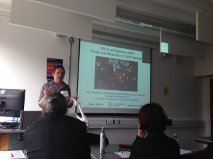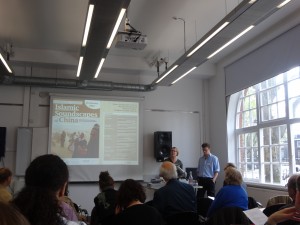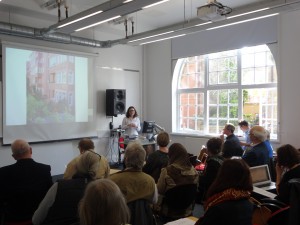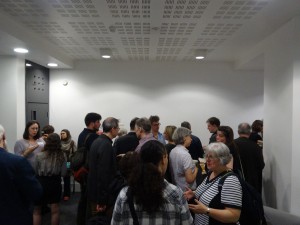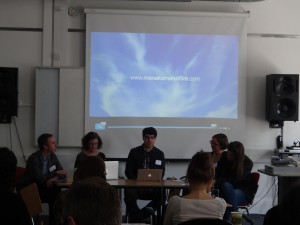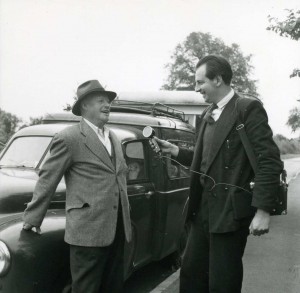By Rachel Cunniffe, MA Music Student
On Friday 20th May, fellow MA student Michael Alloway and I attended the 3rd Westminster-Goldsmiths Symposium for Student Research in Popular Music. Located at the University of Westminster’s Marylebone Campus, the event was hosted by Chris Kennett (Westminster) and Tom Perchard (Goldsmiths, University of London). The day comprised a series of presentations from both Masters and PhD students, including City University’s Steve Wilford, and also featured a fascinating talk by Anthony Farsides, Senior Lecturer at the University of Westminster. It was extremely interesting to hear a selection of forthcoming research in the field of popular music studies.
The opening session focused on ‘Industry and Mediation’ and included presentations on the mediation between managers and emerging popular musicians (Olivia Gable, Open University), the relationship between the two record labels, Mute and Some Bizarre (Leon Clowes, Goldsmiths) and a history of the ‘Golden Age’ of the Columbian recording industry (Lucas Mateo Guingue Valencia, Westminster). The first session was concluded by Anthony Farsides, who presented his research on pop stars and brand patronage. Using recent figures as evidence, he noted the ways in which the contemporary music industry is heavily reliant on global stars such as Adele and Ed Sheeran, and discussed the increasing use of non-music brands such as Burberry for the advertisement and exposure of new artists.
The second morning session was entitled ‘Politics and Performance’ and featured an exploration of PJ Harvey’s Revolving Wheel as ‘political assemblage’ (Jacob Downs, Oxford), followed by a discussion of masculine identity in hip-hop, which focused on the work of Kanye West (Carl Emery, Keele).
After lunch, papers were given on the social motivations behind the purchase and collection of Vinyl (Pete Gofton, Goldsmiths), music and meaning in the Algerian community in London (Steve Wilford, City University London), the influence of Louis Armstrong on Django Reinhardt (Jeremiah Spillane, Goldsmiths) and finally, a proposal of an ‘environment-based connective model’ which will bridge the music industry and academia (Max Cervellino, Westminster).
The final session focused on gender. Here Katrina Fuschillo (UEA) outlined the early stages of her research on contemporary listening practices and musical tastes of ‘working-class women and teenage girls’, and this was followed by a discussion of the representation of women in Bob Dylan’s Tarantula (Sara Martinez, Lancaster).
Many thought-provoking ideas were raised throughout an enjoyable and interesting day.

